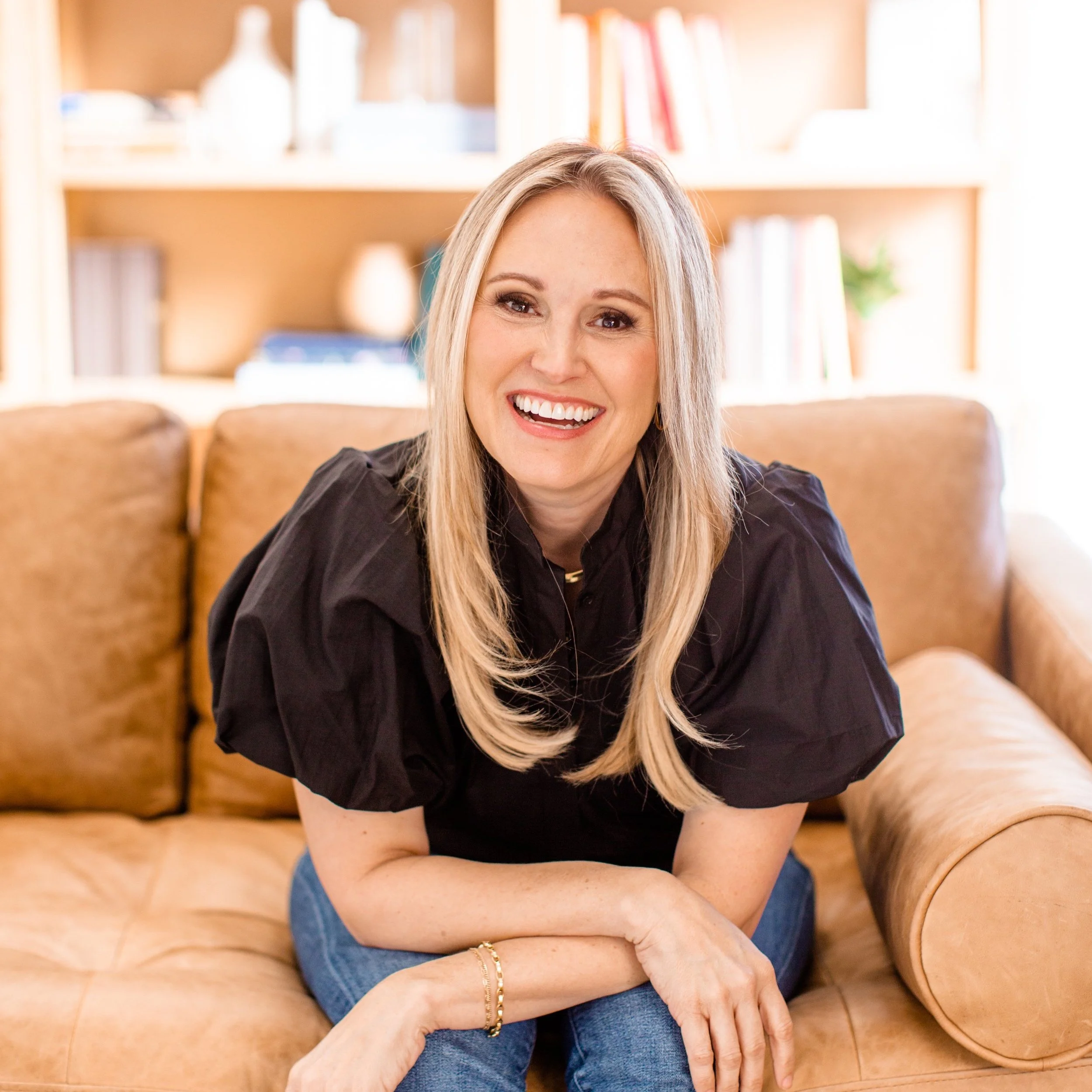Self-Forgetful vs. selfless
Theology of Self
There’s an alternative to selflessness, and it’s not selfishness.
One of the deepest desires of our generation is better emotional wellness and mental health. In fact, mental and emotional health issues have become an epidemic in recent years. However, everything we do in search of mental health is often counterproductive.
One silver lining is that we now feel the brokenness in a way that we haven’t really been in touch with before. And so, we want to experience what it looks like to have our feet planted firmly. We want to know what it looks like to not feel like we're being tossed around.
[We want assurance that we can stand on a rock that is stable and real.]
This can be difficult to achieve in a culture that finds no balance between selfishness and selflessness. I grew up with the same struggle in the church. You were either a completely selfish person who never thought of others or a selfless person only considerate of others, with no regard for your own emotions. But none of these things will bring us closer to what we desire most – God.
We can only find this assurance in the Word of God. Scripture says that God is with you and for you. God loves you more than you can imagine. You were designed, created, and delighted over because of the love, mercy, and grace of God and the forgiveness of Jesus Christ.
While this is all true and good to remember in all seasons of our lives, there's more to faith and discipleship than just remembering.
Self-Discovery is Not Passive
There are real steps we can take toward more stability, growth, maturity, and security in our lives. That road involves many things, one of which is knowing ourselves. It involves knowing where we are so that we can know where we want to go.
“It's one thing to talk about the future works you're going to accomplish for the Lord. It's another to imagine how we are going to get there.”
You must be able to say when you’re not doing great. Saying that out loud is the beginning of getting help. It's the beginning of letting people in and not being alone in your struggle.
We must notice everything going on with us right now. It’s not selfish or self-centered to know where you are starting. ‘The Freedom of Self-Forgetfulness’ by Tim Keller is one of my favorite books, and it's such a powerful countercultural message.
Selflessness Might Actually be the Problem
Tim Keller expresses something beyond selflessness. “Selfless” people who find it wrong or selfish to think about themselves are actually unhealthy because they aren't self-aware. They don't know what to bring to help solve problems because they don't know themselves.
They have no awareness of how they're doing or what gifts they possess from God to give away. If you're always selfless, you may not know why you're behaving a certain way or articulate why something's disappointing. You may not know what you want from a relationship or situation because you don’t know yourself.
The Healthier Alternative to Selflessness
Dr Alison Cook talks about selfhood in her book. This means being aware of yourself. It means expressing what you need, what you want, and where you are. You do this while also being considerate of others.
Selfhood is the perfect middle ground between being selfish and selfless.
“Low self-esteem and pride are horrible nuisances to our own future and everyone around us. When we try to be selfless and never think about ourselves, we will live with insecurity because most often, the way we deal with our insecurity is to notice our insecurity”
– Tim Keller in ‘The Freedom of Self-Forgetfulness’
God wants us to confess.
We must say the truth about our thoughts and feelings to God. However, we have to notice those thoughts and feelings to be able to take them to God. So, the very thing that is most commanded throughout the New Testament calls for self-awareness.
You must be self-aware enough to be able to tell God your shortcomings.
God already knows where we are, but He wants us to confess. He wants us to name where we are and acknowledge that it's far from him. And then He wants to move into it. He will meet our needs, but we need to name it first. That can only happen when we’re self-aware.
Understanding yourself is the beginning of needing God.
It wasn't the people who knew everything that Jesus was most drawn to. But our culture has us thinking we should know how to handle everything. And yet, Jesus was drawn to the people who had questions, struggles, and fears.
And so, this tension of knowing ourselves is a starting point to knowing that we need Jesus. Knowing why we're insecure, afraid, or angry takes a lot of work, whether that’s counseling or talking to a friend to untangle our emotions.
Selfhood is a healthy way to approach personal relationships and our relationship with God. Selfhood means noticing and being curious about yourself, but not letting those feelings and thoughts control you. Rather, you make space for those feelings and understand them so you can move forward.
Aspire to be Gospel Humble
A gospel-humble person has this realistic knowledge of who they are.
They know their strengths and weaknesses. And yet, they’re fully aware that they’re a tool in God's hands. As a gospel-humble person, you know you’re effective for the kingdom because He said you are.
You trust what God says. You don't let your emotions drive you. You are also not so self-denying that you have no idea what you think and feel. You know your thoughts and feelings. You take those to God, and you trust what He says about who you are and what He's called you to.
A gospel-humble person knows that they are living out of a broken story. They may be living a broken life, or even in a broken body. But they know what is true. The power of the Holy Spirit has made them new and able to love.
They have peace, joy, and things that never would be possible without God.
“Whoever wants to be my disciple must deny themselves and take up their cross and follow me. For whoever wants to save their life will lose it, but whoever loses their life for me will find it” – Jesus to His disciples in Matthew 16:24-26.
This is the call. It's not that you never have feelings. It's not that you never notice what you're laying down and what it feels like. You lay it down.
But at the end of the day, you acknowledge that we live by God’s will, not ours. This is what it looks like to walk with God.
As ambassadors of Christ, we don’t pretend that we have no feelings. Being Christian doesn’t mean you have to act like everything's fine. Allow yourself to feel sad, angry, worried, and every other emotion in between. But don’t stay there. Hand whatever you’re feeling to God and trust Him because His will governs our lives.
This is how the peace that God talks about in the Bible takes hold in our lives. It takes hold because we aren't trying to figure it out. We're not trying to put on a good show for everybody to think we’re great Christians. We're being honest. And even though it's hard, we're trusting God.



